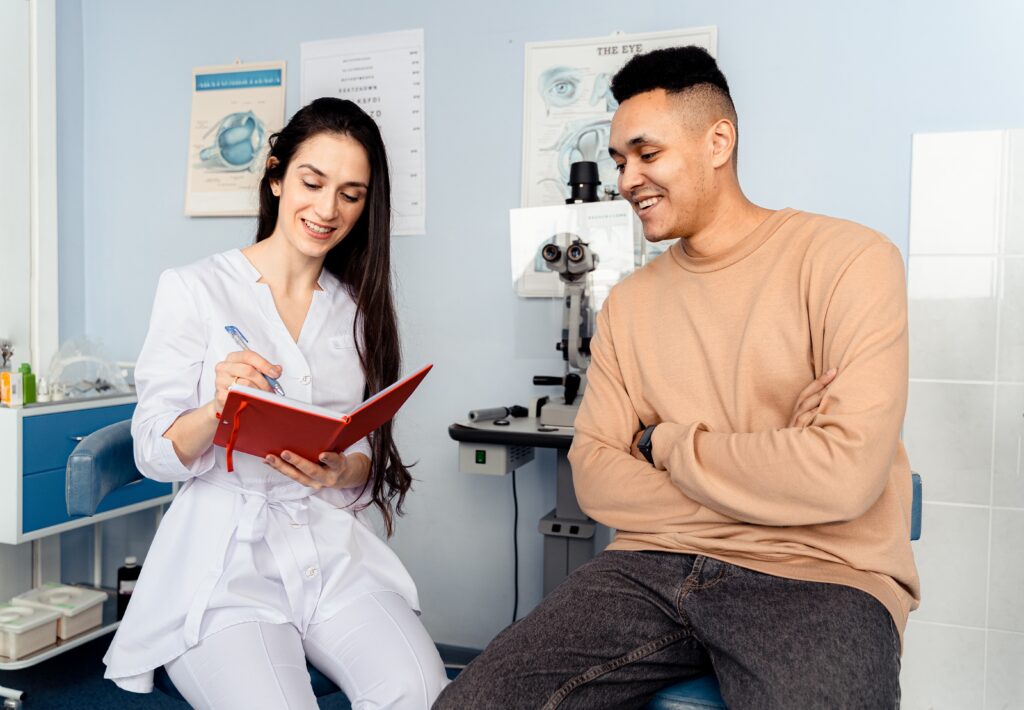
Key Points
- Essential for the early detection of eye conditions and diseases.
- Regular check-ups are needed to keep the prescription for glasses or contact lenses up to date.
- Eye problems may be linked to other health issues you are experiencing that you may not think are related to the eyes.
- Children need to have their eyes tested to prevent learning challenges in school
- Increasing digital eye strain in today’s modern setting is a cause of concern for everyone
- You should visit your Ophthalmologist at least once per year and more often if you have pre-existing conditions.
Why Are Regular Eye Exams Important?
1. Early detection of eye conditions and diseases:
Regular eye exams can help detect vision problems and eye diseases early, allowing for prompt treatment and management. In addition, these exams are crucial for preventing vision loss and maintaining healthy eyesight.
2. Update your prescription:
Over time, your vision can change, and you might not even realize it. Regular eye exams ensure that your prescription remains up-to-date, allowing you to enjoy clear and comfortable vision with the right glasses or contact lenses.
3. Detection of underlying health issues:
You may not realize your Ophthalmologist can detect your health issues! But comprehensive eye exams can also reveal signs of underlying health conditions, such as diabetes, hypertension, and high cholesterol. By identifying these issues early, you can take the necessary steps to manage them and protect your overall health.
4. Eye strain and digital device use:
With the increasing use of digital devices, many Jamaicans experience digital eye strain. Regular eye exams can help address this issue and provide guidance on how to prevent it. Blue-light protection glasses can also be purchased and worn, especially during periods of high screen time.

How often should you visit the Ophthalmologist?
For most Jamaicans, it is recommended by Ophthalmologists to have a comprehensive eye examination every year. However, the frequency may vary based on factors such as age, family history of eye disorders, and any pre-existing conditions.
Children should undergo their first eye exam by age 3, followed by routine check-ups before every significant school change. Ophthalmologists recommend that they be tested before Primary school and before High School to prevent any learning challenges.
Recommended Guidelines
Adults aged 40 and older should visit their eye care professional more frequently as the risk of developing age-related eye conditions increases. The recommended time is every 6 months.
By adhering to these guidelines, Jamaicans can help ensure the early detection and treatment of potential eye problems, contributing to a lifetime of clear vision and healthy eyes.

What a comprehensive Eye Exam includes:
Visual acuity test
This test measures the sharpness of your vision and helps determine if you need glasses or contact lenses.
Pupil dilation
By dilating your pupils, your eye care professionals can examine the internal structures of your eyes and check for any signs of eye diseases or conditions.
Intraocular pressure test
This test helps identify the risk of developing glaucoma by measuring the pressure inside your eyes.
Eye coordination and movement test
This test assesses how well your eyes work together and ensures proper alignment and functioning.
Retinal examination
A thorough examination of your retina helps detect any abnormalities, signs of damage, or early signs of diseases such as macular degeneration and diabetic retinopathy.
See your Ophthalmologist Today!
Remember to visit your Ophthalmologist at least once a year, or more frequently if you have pre-existing conditions or risk factors, to ensure that your eyes receive the care and attention they deserve.
By prioritizing regular eye exams, Jamaicans can take proactive steps to safeguard their vision and overall health while living with comfortable sight.
Please don’t underestimate the importance of eye care; make it a priority for you and your family to schedule routine check-ups with your Ophthalmologist
